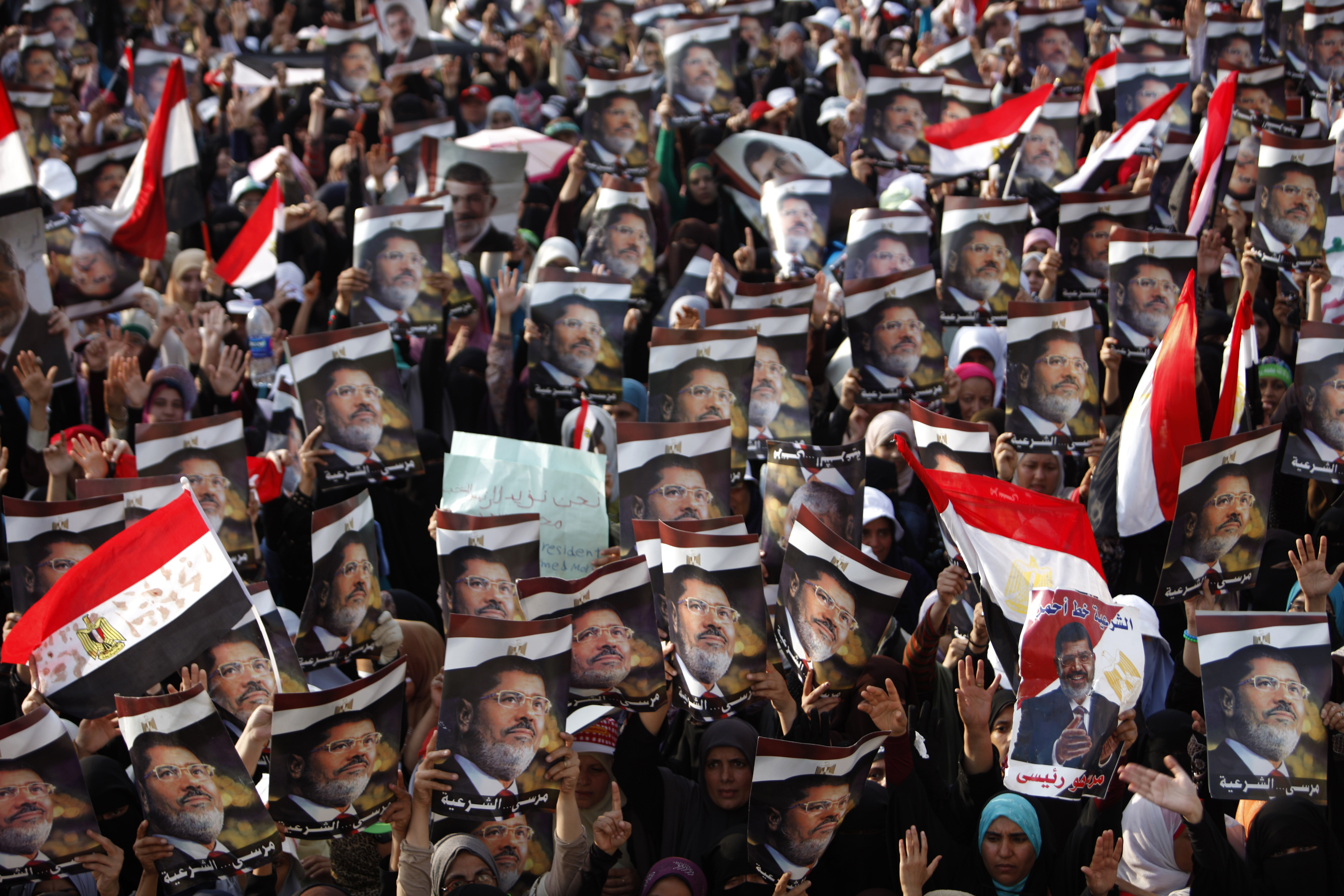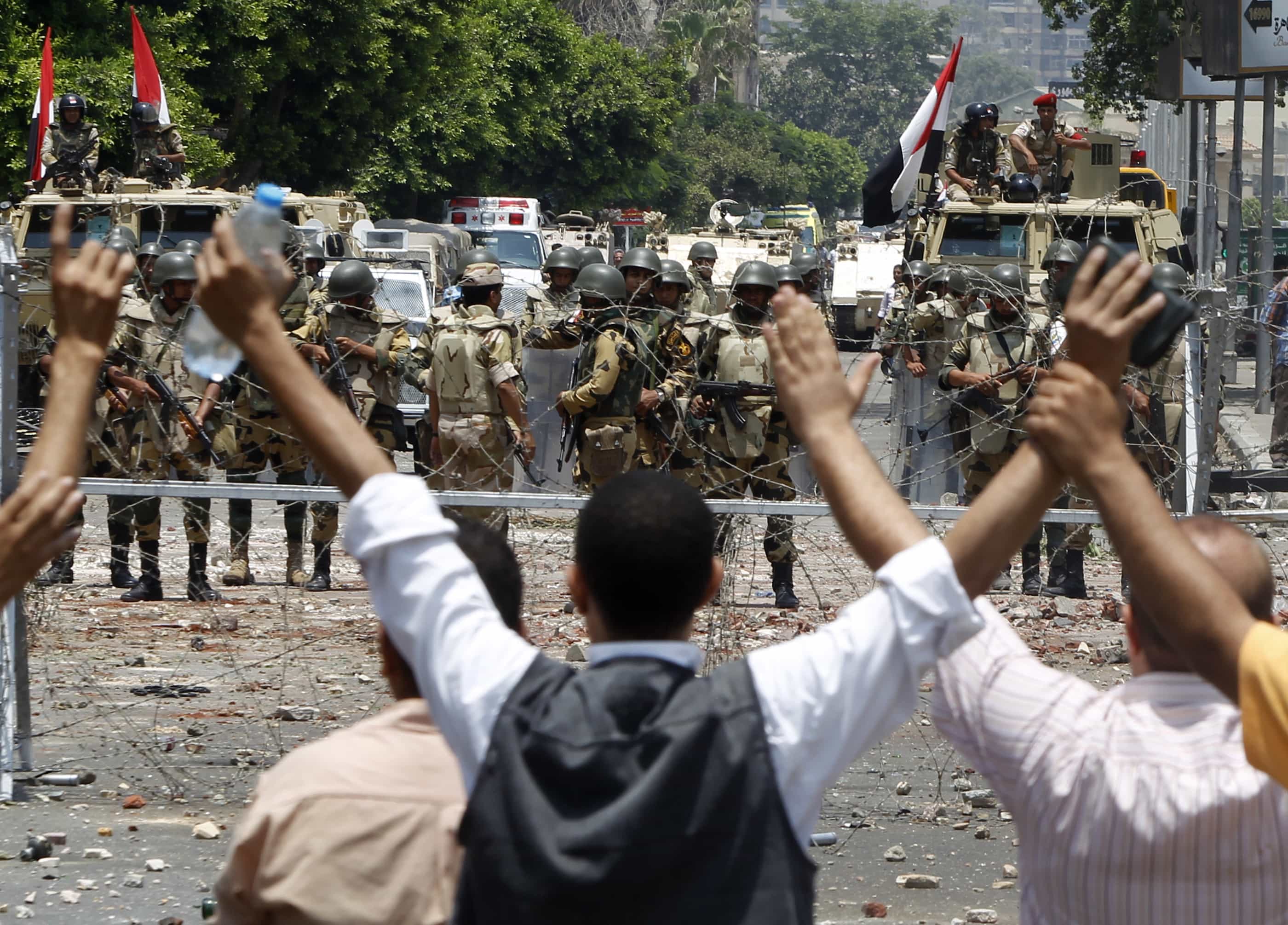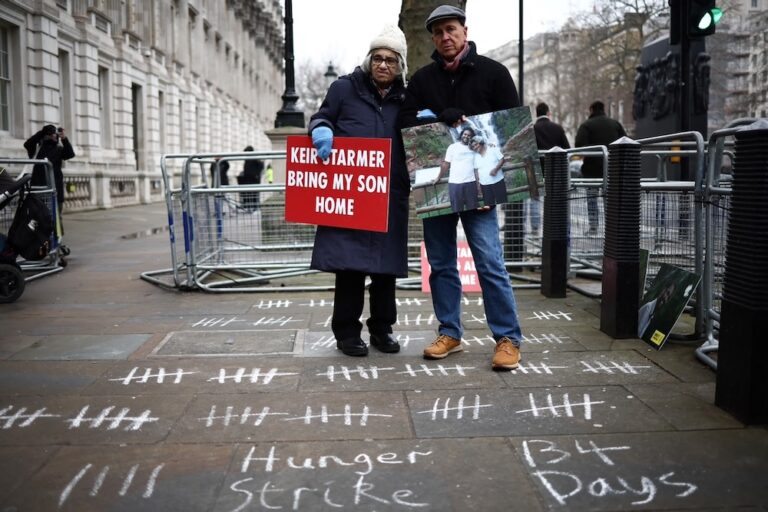As Egyptians battle over conflicting visions for the future of their country, both journalists and the right to free expression are at risk.
In the past two weeks, two Egyptian journalists were killed while covering protests and clashes between Muslim Brotherhood supporters and opposition activists.
On 29 June, Salah al-Din Hassan, a 37-year-old reporter with independent news website Shaab Masr, was killed while covering a demonstration against President Mohammed Morsi in the city of Port Said.
Ahmed Assem El-Senousy, 26, journalist and photographer for the Muslim Brotherhood’s Freedom and Justice newspaper, was shot by a sniper while covering the events of 8 July when Egyptian soldiers opened fire on Muslim Brotherhood demonstrators, killing more than 50. El-Senousy captured his own death on camera as he filmed the incident.
Prior to these deaths, only four journalists had been killed in Egypt since 1992, according to the Committee to Protect Journalists (CPJ).
The country has been steadily falling deeper into a state of chaos since the days leading up to 30 June, which marked one year of President Morsi’s rule.
Millions of Egyptians had flooded the streets accusing him of failing to fulfill the goals of the revolution, and calling for him to step down. Morsi was not without his supporters though as tens of thousands of Egyptians also gathered, chanting his name.
A ‘dark tunnel of conflict’ is the phrase General Abdel Fattah al-Sisi, defense minister and chief of the military, used when he vowed to step in to prevent further unrest.
On 1 July, the military gave Morsi 48 hours to reach an agreement with the opposition or the armed forces would intervene. Shortly after the deadline had passed, Morsi was deposed and several Muslim Brotherhood leaders arrested.
Egypt remained in that ‘dark tunnel of conflict’ referred to earlier, but much of the subsequent suffering could be attributed to the military itself.
When the military raided Al-Jazeera’s Egyptian station, arresting its director, and shutting down three others supportive of Morsi just minutes after removing him from his post, their actions were widely interpreted as an effort to cut off coverage of pro-Morsi events, thereby depriving Egyptians of information sources at an important juncture.
Although the director was released on 7 July on bail of 10,000 Egyptian pounds (approximately US$1,400), the country’s military-run government seems to have launched an arrest campaign against journalists.
Recalling incidents that took place during the January 2011 revolt when international media correspondents came under attack while covering the protests, Index on Censorship reported that a live broadcast was interrupted on 5 July when soldiers seized the camera as CNN’s Senior International Correspondent Ben Wedeman was covering the clashes.
CPJ has reported on many other international journalists targeted in the past few days for reporting on pro-Morsi protests.
“If the interim government is sincere about pursuing reconciliation and democracy, it must begin by respecting freedom of the press. All voices, including those of the Muslim Brotherhood, must be heard,” Sherif Mansour, CPJ’s Middle East and North Africa program coordinator, said. “The government should not repeat its predecessors’ mistakes of trying to silence dissent.”
As Morsi supporters regrouped and took to the streets in huge numbers, determined to re-instate the ousted president, violent clashes marred the streets of Cairo and other major cities around Egypt.
During the fierce street battles that took place in the chaotic week that followed 30 June, 75 people from both pro-Morsi and anti-Morsi factions were left dead.
Then, on 8 July, Egyptian soldiers opened fire on Muslim Brotherhood demonstrators in front of the Republican Guard headquarters in Cairo, killing more than 50. In addition to journalist Ahmed Assem el-Senousy, two soldiers also died in this conflict. Each side blames the other for starting the killing spree. The military claim they were attacked, while pro-Morsi supporters say there is evidence that some of the dead and wounded were shot while kneeling to pray. Local rights organisations have stressed that even if some demonstrators were being violent, the military’s reaction was unjustified.
“We all mourn the tragic loss of journalist Ahmed Assem el-Senousy,” said president of the International Federation of Journalists (IFJ) Jim Boumelha. “His senseless murder demonstrates the risks our colleagues covering the political and social unrest in Egypt are facing every day.”
The Egyptian Organization for Human Rights (EOHR) condemned the violence and rejected the military’s rhetoric that the shootings were in the name of preserving the security of the country and its citizens. Hafez Abu Seada, head of EOHR, called on authorities to launch an immediate investigation into the incident and to ensure the perpetrators from all sides answer for their crimes.
While enraged protesters from the opposing groups continue to occupy the streets of Egypt, Morsi has been kept, along with at least ten members of his team, in incommunicado detention since 3 July. According to Human Rights Watch, the military has not confirmed where they are currently held, and they have not been formally charged or brought before a judge.
“Both General al-Sisi and interim President Adly Mansour promised that the political transition process would be inclusive, but these violations of basic political rights will mean the Muslim Brotherhood and others will be shut out of political life,” said Joe Stork, deputy Middle East and North Africa director at Human Rights Watch. “Without strict respect for the rule of law and basic rights from the start there will be no political freedom.”
Though the regime has changed hands more than once in the past couple of years, violations against press freedom and free expression have unfortunately been a constant, a casualty of the deep divide within society as Egyptians, in their efforts to protect the revolution, split into warring factions, each with their own vision for Egypt’s future.
Fifteen local Egyptian human rights organisations, including the Cairo Institute for Human Rights Studies and the Arabic Network for Human Rights Information, have joined forces and published a statement on 9 July addressed to the entire Egyptian nation warning against all forms of incitement to violence and murder as “it will make it practically impossible to re-launch a comprehensive political process leading to the fulfillment of the revolution’s goals.”

Morsi supporters hold his posters as they rally at the Rabaa Adawia square where they are camping, in Cairo on 8 July 2013REUTERS/Khaled Abdullah



